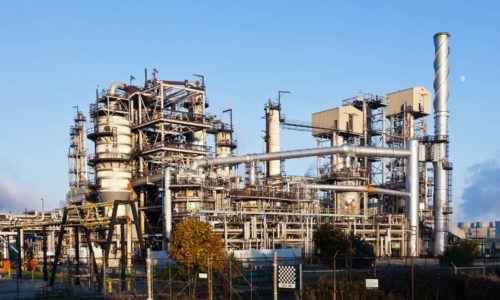
Training on crude oil separation and Petroleum Refineries, process engineer course
Duration: 3 Months Course fee: 36,000/-
Overview:
Petroleum engineering is the application of chemistry, physics, math, geology, and engineering principles to discover a cost-effective way to identify promising areas for exploration, access this natural resource, and refine it into desirable products. Chemists in the oil and petroleum industry work with crude oil and the products derived from it right from the identification of the Oil well till the getting of the end product.
The industry can be divided into two major components: upstream and downstream. The upstream takes care of the exploration and production of hydrocarbon, i.e. crude oil and gas, whereas downstream industry refines the produced hydrocarbon into usable products such as naphtha, kerosene, aviation turbine fuel, gasoline, diesel & LPG and markets these refined products. The integrated oil and gas organizations are involved in both components of the petroleum industry. This industry needs chemical engineers, organic, analytical, inorganic, physical chemists, biochemists etc
Process Engineer Course training includes…
- Introduction to Refineries
- Distillation columns, pressure vessels, Heaters, Furnaces, heat exchangers, Cooling towers, Turbines, Pumps, Compressors – Design basis & philosophy, Installations & Commissioning
- Process Instrumentation, Measurement devices
- Process flow drawings,
- Pipiing & Instrumentation Drawings
- NEBOSH, OSHA – Safety Engineering
- Basic Hydro carbon chemistry, crude oil seperation
- Hydro cracking, thermal cracking
- Plant Automation, PLC & SCADA
- Pipelines and Storage tanks
Roles and Responsibilities of a Chemical Engineer
- testing new processes
- collecting data required to make improvements and modifications
- overseeing the construction of new plants
- using and developing process simulation software to work out the best production methods
- purchasing and installing equipment
- using scientific principles related to magnitude, momentum, heat transfer etc
- supervising plant operations
- investigating and troubleshooting plant/process problems
- scheduling and coordinating work to tight deadlines and within financial budgets
- ensuring that equipment works to its specification and to appropriate capacities
- assessing safety and environmental issues
- liaising with installation/project engineers and specialists
- ensuring safe working conditions and compliance with health and safety legislation.
Training on Processing Units in Refineries
- Crude Oil Distillation unit
- Vacuum distillation unit
- Naphtha hydrotreater unit
- Catalytic reforming unit
- Alkylation unit
- Isomerization unit
- Distillate hydrotreater unit
- Merox (mercaptan oxidizer)
- Amine gas treater, Claus unit
- Fluid catalytic cracking (FCC) unit
- Hydrocracker unit
- Visbreaker unit
- Delayed coking and fluid coker units
Jobs available in Downstream technologies
Refining
Oil refineries cost billions of pounds to build and maintain, and run 24 hours a day, 365 days a year. Because they’re such an expensive and essential part of the oil and gas industry, hiring the right people is of paramount importance. In fact, it’s estimated that somewhere in the region of 1.5 million people work within refining worldwide.
Processing
Jobs within the processing part of the oil and gas industry are also primarily found within oil refineries. However, roles vary greatly depending on what material is being produced. Processing jobs include Process Engineer, Plant Operator, Product Controller and Turnaround (TAR) Manager.
Job scope for a chemical engineer
- Design and development of chemical processes and equipment
- Optimisation and control of industrial operations
- Plant operation and management
- Fundamental and applied research from the molecular level to full industrial scale
- Environmental management, monitoring and pollution control
Projects & Case studies
- A critical analysis on Different Equipment used in Downstream technologies
- Operations, Maintenance, Troubleshooting of equipment
- Thermal cracking, Refining and Processing technologies
- Piping, Pumps, Logistics and Transportation of chemicals
- Environment, Pollution control and Legal compliance
- Health, Safety and Risk Management
